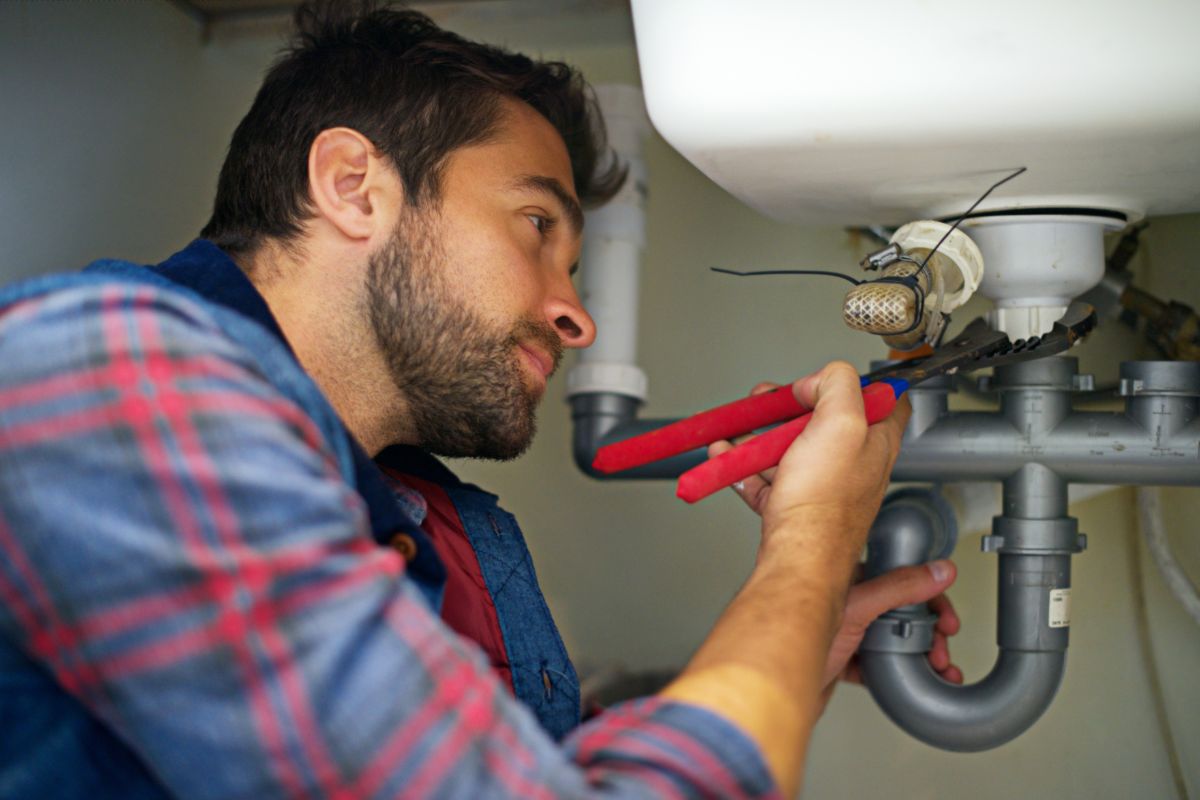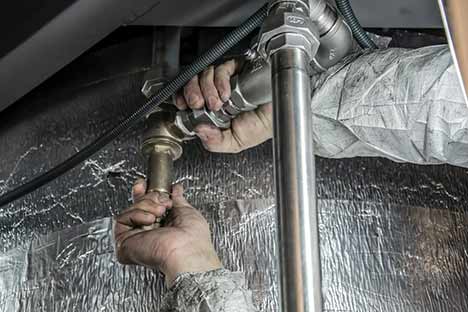Handling Emergency Plumbing Issues: Immediate Fixes Until Specialist Help Arrives
Handling Emergency Plumbing Issues: Immediate Fixes Until Specialist Help Arrives
Blog Article
We've discovered this article involving Expert Tips for Managing a Plumbing Emergency Until Help Arrives below on the web and concluded it made perfect sense to share it with you here.

Pipes emergency situations can strike any time, triggering tension and potential damages to your home. Whether it's a ruptured pipeline, a blocked drainpipe, or a leaking faucet, knowing exactly how to manage the scenario up until a professional plumbing technician gets here can save you from more complications. This post offers important emergency situation plumbing tips to aid you minimize damages and restore control during a pipes dilemma.
Shut off the Water Supply
The first step in any kind of plumbing emergency is to shut down the water system. For local problems, such as a leaking tap or toilet, switch off the shutoff near the fixture. When it comes to a significant leak or ruptured pipeline, locate your home's major water shut-off shutoff and turn it off quickly. Understanding the location of these shutoffs in advance can conserve useful time during an emergency.
Address Little Leakages with Momentary Fixes
Tiny leaks can quickly come to be significant troubles if left unattended. Use these momentary fixes till expert aid shows up:
While these repairs aren't irreversible, they can assist decrease water loss and damage.
Unclog Drains Pipes Safely
A stopped up drainpipe can be an irritating and unpleasant issue. Right here's just how to tackle it:
If these techniques do not function, avoid utilizing extreme pressure, as it may intensify the blockage.
Handle Overflowing Toilets
An overruning commode can cause instant turmoil. Below's what you should do:
Shut Off Your Water Heater
In certain emergencies, such as a burst pipe, it's wise to shut down your hot water heater. This protects against getting too hot or damage to the unit when water stops flowing. Turn off the power supply to the water heater (electric or gas) and let it cool down to stay clear of possible threats.
Momentarily Quit a Ruptured Pipeline
A ruptured pipeline can cause significant water damage in mins. To minimize the concern:
Call a professional plumber immediately to resolve the trouble permanently.
Deal With Frozen Pipeline Meticulously
In chillier climates, frozen pipelines are a typical emergency. If you suspect an icy pipeline:
Prevent Additional Damage
Taking fast action to reduce damages can save you time and money in the future. Here's just how:
. Have an Emergency Pipes Kit
Prepare a fundamental plumbing emergency situation set to take care of minor concerns efficiently. Your package ought to consist of:
Having these devices available can make a substantial distinction in your capacity to handle emergency situations.
Know When to Call a Professional.
While quick fixes can assist momentarily, certain pipes issues need prompt professional interest. Call a plumber if:.
Promptly calling a specialist guarantees the issue is solved appropriately and prevents additional issues.
Verdict.
Pipes emergencies can be overwhelming, however with the ideal expertise and devices, you can manage the situation efficiently up until help arrives. By shutting off the water system, attending to tiny leakages, and making use of momentary solutions, you can decrease damages and maintain your home safe. Bear in mind, these tips are temporary services; always speak with a certified plumber to handle the root cause of the problem. Preparation and quick thinking are your finest allies in any type of plumbing emergency.
8 Helpful Tips for Managing Plumbing Emergencies at Home
If your plumbing system hasn’t failed once, wait for it because almost everyone has a story to tell. Sometimes, it could be simple emergencies such as a leaking pipe, a blocked cistern, or even a big burst pipe. In situations like this, you need to have some handy tips to save you some money and from possible damages.
Take care of minor issues early.
Sometimes, you could have avoided an emergency by taking proactive measures while it was still early. Some major plumbing emergencies can be a result of an ignored minor issue. We recommend that you have items like plumbing tapes and other related items. A plumbing tape can allow you to manage minor leaks before the plumber arrives.
Cut off the water supply.
This tip is essential in almost any type of leakage problem. For problems like minor leakages in the toilet or kitchen, turn off the supply that takes water to the affected pipes. If the leakage is a major pipe, you must shut off the supply valve to the entire building. This will help you avoid flooding your home and neighbors if you share a flat.
Know your plumbing system
Folks typically move into a new apartment without understanding the water supply around the building. This can prove disastrous if a water emergency arises and the plumber is far away. The previous tip will prove useless if you don’t practice this one. More importantly, know where your water shut-off valve is located – you’ll need that knowledge to prevent potential home floods.
Have some common handy tools
There are lots of plumbing emergencies that you can handle without hiring a plumber. That’s why you must keep some tools available always. Some tools that you can use to fix simple plumbing emergencies easily include plumbing tapes, screwdrivers, thread seal tapes, plungers, pliers, tape measures, and rubber gloves.
Insulate your pipes from cold
You’ll save yourself from many plumbing expenses if you protect your water pipes from the cold. This is because of the harmful effects that cold weather can have on your pipes. During winter, your pipes can burst from being overly expected to freezing temperatures. So, make sure insulators are there to keep the pipes working correctly.
Avoid practices that will clog your toilet.
Many people indulge in practices that can damage the plumbing system of the entire building. One of these is when they use their toilet to dispose-off garbage. They flush all kinds of things, such as paper towels, bandages, hairs, female sanitary products, etc., down the toilet. This will block your toilet in the long run, incurring unnecessary expenditures. Dump such waste in the trash instead.
Check your dials regularly.
Sometimes, there could be leakages in your home without noticing them in time. So, constantly monitor your water meter dial. If the dial is reading when there is nobody using water, this is an indicator that there is leaking. Check for leaks immediately. Call a plumber as soon as possible if you can’t find any.
https://www.constructionplacements.com/8-helpful-tips-for-managing-plumbing-emergencies-at-home/

I stumbled upon that content about What to Do During a Plumbing Emergency while doing a lookup on the web. If you enjoyed our page kindly do not forget to share it. Thank you for being here. Please come visit our website back soon.
Click Here Report this page